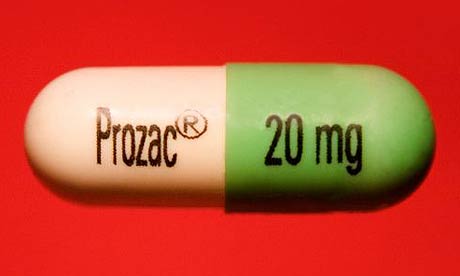Per FDA guidelines, as far as I'm aware, generics should be the same medication, all things being equal, as the trade-name meds. The FDA regulates generics just like they regulate the trade-names, including guidelines where the FDA occasionally randomly picks out a med, puts it under a spectrometer to double-check to see if the generic med is actually what the company claims it to be.
Here's just one article about it. I've read the same data from several difference sources including medical journals, Consumer Reports, even business programs.
http://www.ehow.com/facts_7329312_fda-guidelines-bioequivalence.html
Okay, here's where I can actually teach you something you won't learn in a journal, textbook, or classroom. Do I believe the above? Yes. But I have seen some patients, though it's rare, be able to tolerate one med but not another that are supposed to be the same med, but one is generic and the other is not. It's not common, but I tend to get at least one person every few months if not more where this happens.
E.g. The person can tolerate Citalopram but not Lexapro, or the person can tolerate Citalopram from Walgreens but not from CVS.
An educated doctor, but not an open-minded one may accuse the patient of lying or simply having a psychosomatic problem to the new med. This is hogwash in some cases. I've seen patients switch pharmacies not expecting there to be any difference but get a different reaction with the different meds despite the FDA guidelines.
How can this be?
Medications usually aren't the pure medication in and of itself.
Take Prozac (flouxetine) for example....
Huh, Why is one a capsule and one a pill? It's all in the manufacturing. When one takes the capsule, you're taking a gel capsule that's made of material other than fluoxetine. When you take the pill, the medication (fluoxetine) is mixed with a filler that allows the medication to survive the rigors of the GI tract and get absorbed.
Simply put, one may have a bad reaction to the filler or it's official name, an "excipient."
http://en.wikipedia.org/wiki/Excipient
When one has an allergic reaction to a "medication", that person may in fact not be allergic to the bioactive pharmacological agent known as the medication, but merely a bad reaction to the excipient. It's possible one may be able to take the medication from another manufacturer that doesn't use the same excipient.
Now here is where I criticize doctors. Several doctors don't know this. So when patients have a bad reaction to a generic but not the trade-name or vice-versa, some doctors flip out, accusing their patients of lying or being hypochondriacs. The doctor, knowing more about medicine in general, but not the entire picture, often times feel they are always right and their patients are always under them in terms of specific medical knowledge.
I've seen several patients that actively looked up their disease on Internet forums and actually taught me a thing or two about their situation not taught in the medical textbooks. E.g. I had a patient who had an iatrogenic dependence on benzodiazepines thanks to a previous doctor that gave it out like candy, and I was weaning her off of it. She developed a rash during the taper-down. I never recalled seeing this phenomenon in the texts and when she did her own research, she found that could happen from a taper-down. After I did some more looking into it, I did find articles showing this though they were hard to find and not in the textbooks.
An egocentric doctor would've automatically thought this patient was lying, or at least misinformed.
The bottom line is that in medicine, the data can only suggest what usually goes on more often than not. If a person has a headache, yes ibuprofen usually will work, but you can't give it to 100% of people expecting it to work the same for everyone. A patient tells you they lost their script of Xanax, and asks you to replace it, you can't immediately assume they're lying. Yes--I would not replace it because they are likely lying, but there's a possibility they may not be. In cases like this, I tell the patient (and I hardly ever give out Xanax anyway, and when I do it's only because I'm tapering a patient off of it from some other doctor that started them on it) that I am not trying to judge against them, but based on reasonable medical certainty I have to follow good practice guidelines and I cannot read their minds. Besides, I warn any patient on any substance of abuse that I will never replace lost scripts for those types of meds so don't even ask me.
I emphasize this because I've seen too many narcissistic and egocentric doctors always point to disagreeing patients as being wrong when that is not always the case. Several patients have reactions that are not the norm.
The bottom line is one could get a better reaction from a tradename med vs a generic med vs a generic med from a different manufacturer of the other generic. If so, it's likely due to the excipient. Manufacturing processes differ and the medication from one company may not be 100% the same in terms of bioequivalence but per FDA guidelines they must be darned close (e.g. 98%). The odds of getting a different reaction are rare, but I've seen them happen to the degree where one cannot assume it'll never happen. If one does have a good reaction to one and not another, the specific manufacturer of that specific med must be identified and the patient must only continue that med from that specific manufacturer or avoid the med from the other manufacturer where they did not have as good an experience.

